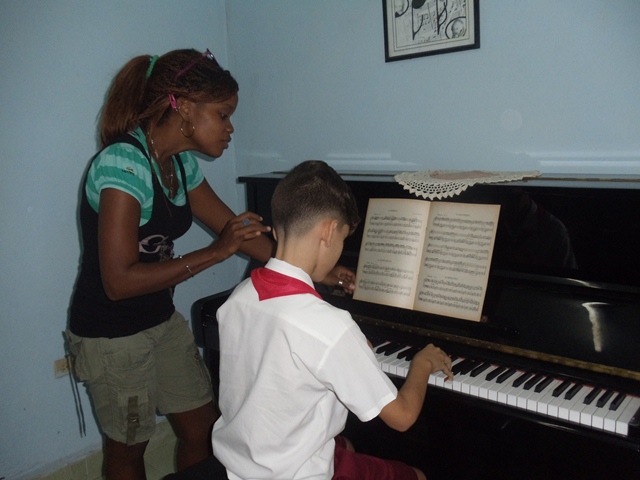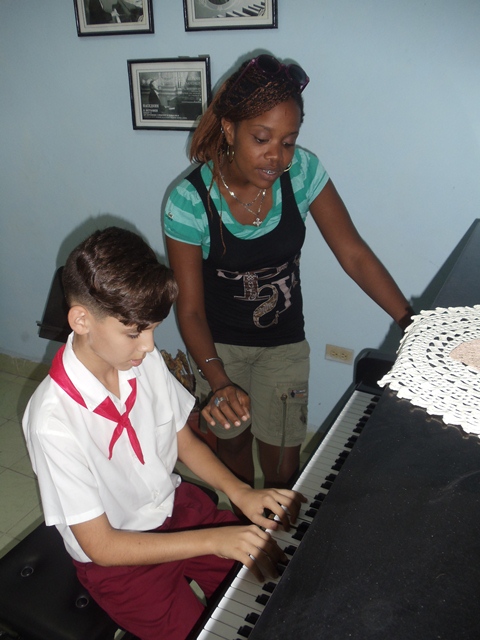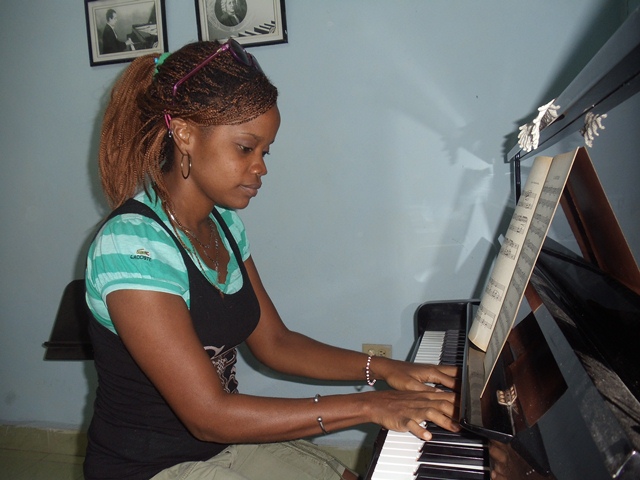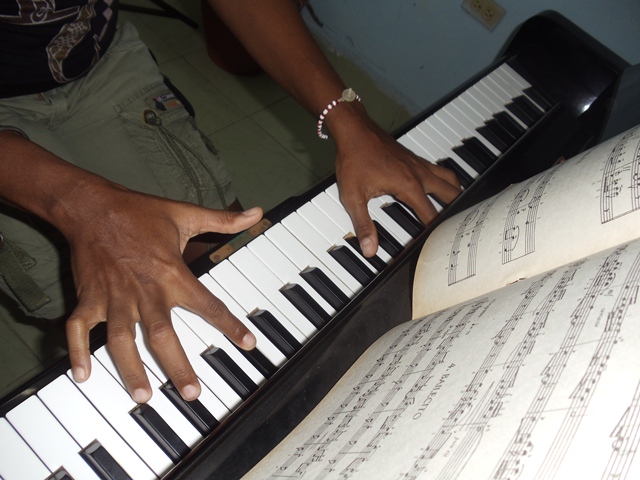 This young musician is fully committed to teaching. For her, the classroom is the best scenario and her pupils as the most demanding audience
This young musician is fully committed to teaching. For her, the classroom is the best scenario and her pupils as the most demanding audience
Although both her parents are doctors, it could be said that Abbis María Jurdá Rodríguez is the daughter of Euterpe. It’s not blood what flows through her veins, but chords, and the rhythm of her heart is marked by the melodies of the piano, the oasis where she feels really free.
“I feel fully realized”, she said over and over again like a refrain. This feeling is exalted when she plays four-hand with one of her students, in the classroom of the Ernesto Lecuona Elementary Art School, the same classroom where just six years ago, she had to memorize the pieces she was supposed to play in her final exam.
At this point, everyone imagined her playing in a renowned band in Havana, going in international tours, or recording discs…But this 26-year-old girl took the classroom as her best scenario, and her pupils as the most demanding audience.
“I graduated from theoretical musical subjects because since I was very young, I liked to teach music”, she said. One day she discovered herself teaching lessons of theory, harmony, and piano to students of nearly her own age. So, she had to “redouble her professional training to try to clarify all the doubts. Educating is an exercise full of unforeseen. When you least imagine, a student will ask you any kind of question”.
While other teachers see their students develop through interpretations of texts and mathematical reasoning, Abbis has to evaluate the learning of musical notes, both in the classroom, and as head of the piano department of the institution.
But sometimes this young professor deals with the sound of melancholic notes when she looks at the pale walls of some of the classrooms, once gleaming, the deserted areas, and the panting of the old musical instruments. “We are lucky to have this at least —she admits as a consolation—, with that half the battle is won, but it doesn’t mean good quality most of the times. For example, a piano tuner is an emergency that cannot take longer”.
And there’s also the sound of low notes when she thinks of the empty chairs in the audience when classic music is played, or the exodus of young talents to other provinces due to the meager opportunities they have here to save this kind of music faced with the seductive chords of popular music.
“We lack public awareness —she added—. It is concert musicians what we train. It’s not the same to be inclined to other musical genres for personal motivation than to do it because you have no choice. Sancti Spiritus has failed to rescue the artists that we later on see on national scenarios, or even abroad. We still dream of a symphony orchestra”.
With the righteousness inherited from those who once were her professors, and whom she should now call colleagues, she considers seriousness as an indispensable requisite when deciding to teach music. “When you’re a student, you must take two academic programs at the same time, but everything is possible with planning. Music is serious business, a road where only those who persevere get far”, she said.
Abbis supervises her pupil. She corrects his mistakes, whispers the notes for him to set the sound … She goes back to the days when she was the learner herself, recalls Vitier’s compositions which she memorized endlessly, and after the class she cannot resist the temptation of caressing the piano keys.
The piano talks. Abbis flies away where, since she was a child, finds her definitive freedom. And, from the distance, Euterpe smiles to this dark-skinned daughter she has in the Village of the Holy Spirit.
 Escambray ENGLISH EDITION
Escambray ENGLISH EDITION








Escambray reserves the right to publish comments.